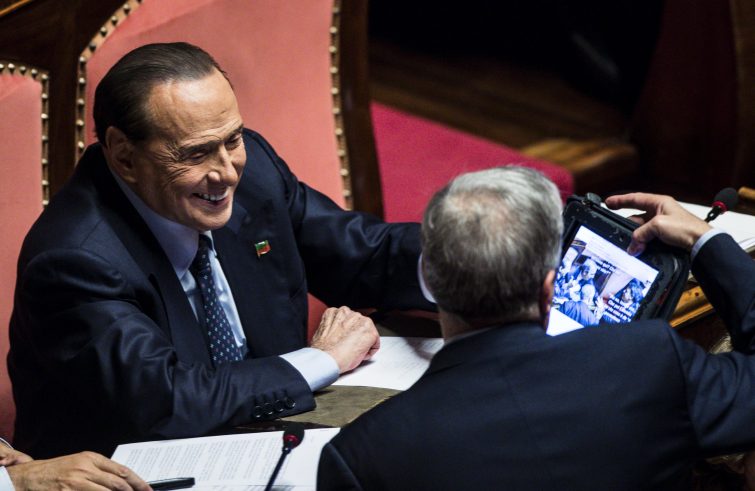
“He pioneered post-political politics.” With these words, Paolo Pombeni, one of Italy’s most distinguished historians and political analysts, offers an overview of Silvio Berlusconi’s legacy on Italian political life on the day of his death. However, he warns, it will take time before his time in office is thoroughly assessed.
Berlusconi has unquestionably been at the forefront of Italian public life, over the past few decades. How did this role unfold?
First of all, as the founder of the private television system in Italy. He did not start with a small local TV station but with a company, that managed to compete with the national public broadcasting company of Italy, RAI. This would be enough to define him as a protagonist.
In fact, he was a key player in the political arena in that he understood that it was possible to create a new political party from scratch. Until the creation of his political party, Forza Italia, it was widely believed that the most that could be achieved was the creation of a few minority parties, but Berlusconi, by contrast, created a political force that was ultimately decisive in terms of the dynamics of the Italian political system.
He was also a Prime Minister and an undoubtedly important Opposition Leader. It will take time to assess the merits of what he achieved in these roles. He certainly made the cult of personality in politics visible and forced the left and other political forces to chase him in this direction – although on the other side of Berlusconi’s camp, the personalisation of politics has only been successful with Prime Minister Prodi.
In which other ways did Berlusconi have a deep impact on the vicissitudes of our political system?
I would like to highlight two aspects in particular. Firstly, the ideas that Berlusconi put forward and pursued were detached from the traditional division of Italian politics. It is true that his reference to liberalism was at times a bit of a mockery, but his political proposal was in fact completely detatched from the post-war trends that had hitherto unfolded.
He virtually initiated post-political politics – in a nutshell.
The other factor relates to the subject of bipolarity. Despite the political structure of the country seemed impervious to this system – and it partly still is – Mr. Berlusconi believed it was possible to narrow the fragmentation of political forces down to two poles.
Now everyone is wondering what will happen in Forza Italia and in that political camp….
I honestly think that nobody knows at the moment. Certainly nothing will be the same as before. It remains to be seen whether the fact that Forza Italia still has considerable political clout will persuade the various parties in the coalition to come to an agreement, or whether there will be a fight among the aspiring successors. In the latter case, the situation is bound to explode. I am thinking not so much of the leaders, who will try to reposition themselves either way, but of the voters. We will have to wait and see how many will stick to their previous experience and how many will go in other directions, for example to the Third Pole.












